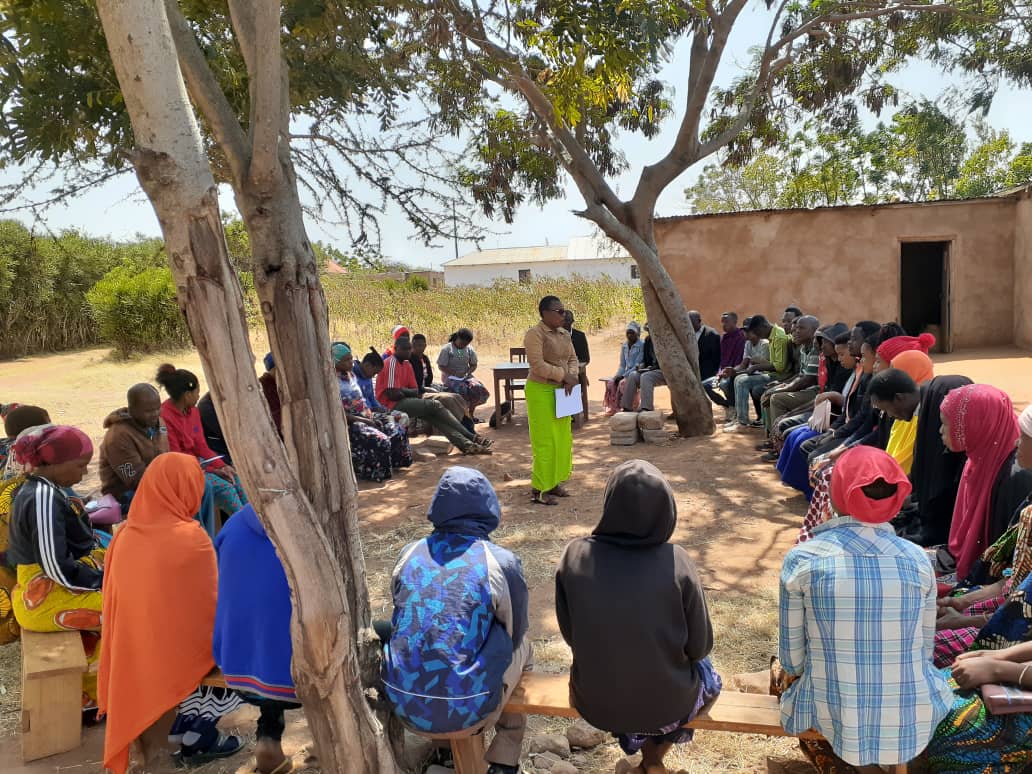Kicking out female genital mutilation and other harmful practices in Singida using Mobile Data Tracking System
The need to fight female genital mutilation
It is estimated that more than 200 million girls and women alive today have undergone female genital mutilation (FGM) in the countries where the practice is concentrated. In addition, every year an estimated 3 million girls are at risk of undergoing female genital mutilation, the majority of whom are cut before they turn 15 years old. If the current trend continues, 15 million additional girls between ages 15 and 19 will be subjected to FGM by 2030.
In Tanzania approximately 10% of women, aged 15-49 years have undergone female genital mutilation (TDHS, 2016). In Singida region, statistics indicate that 31% of women of the same age have undergone FGM (TDHS, 2016). The survey further reported that 51.5% of the female children in the region have had FGM before the age of 1 year.

Tanzania criminalizes FGM
The government of Tanzania prohibits the practice of FGM under its Sexual Offences Special Provision Act 1998. The law provides that anyone having custody, charge or care of a girl under eighteen years of age and who causes her to undergo FGM, commits the offence of cruelty to children. The penalty for this offence is a term of imprisonment from five to fifteen years, a fine of up to 300,000 shillings or both. The law also provides for the payment of compensation by the perpetrator to the person against whom the offence was committed. A change in the law has brought fear of prosecution and is driving the practice underground.

Finland supports fight against FGM
Finland is supporting a Tanzanian Non-Governmental Organization Empower Society, Transform Lives (ESTL) to implement project ‘Kick FGM out of Singida Project’ with the aims of raising awareness, changing attitudes and promoting behavior change on harmful traditional practices particularly FGM, early marriage and pregnancies and forced marriage in Singida Region. Gender issues are an important part of Finland's development cooperation with Tanzania and the rights of women are a key component of Finland’s foreign policy priorities.
The mobile data tracking system
This is one of the approach used by the organization to help people get access to information and support needed to save lives of those affected by FGM and other forms of gender-based violence (GBV).
The tool was developed with the financial support from the Foundation for Civil Society in 2017. In early 2020, ESTL received funds from Finland's Fund for Local Cooperation (FLC) to expand the functionalities of the system in order to accommodate growing demands of ESTL programming, especially facilitating reporting and quick response to acts of violence against children and women.
The technology, which uses a special mobile phone number +255 710 567 003 and is accessible online (Link to another website.) (Opens New Window) is useful in many aspects of the interventions. The system allows community members to report about FGM and other GBV cases from their communities and enables authorities such as the police, social welfare, health facilities and legal departments to take quick and appropriate actions to serve the affected members of the community.

What difference has it made?
The system has facilitated creation of a database of project beneficiaries and it hosts 340 digital platforms of beneficiaries. Some of the platforms formed include educators, community health workers, law enforcement officials, religious leaders, village leaders, youngsters and FGM male champions. Such platforms ensure that ESTL continues to be in touch with beneficiary communities even after phasing out of project activities in targeted areas. The system has many functionalities including providing weekly, monthly, quarterly and annually GBV reports as well as supporting data analysis.
The system has facilitated the smooth implementation of the project and improvements in information exchange and reporting on acts of violence against women and children in Singida. For example, from June to September 2020, ESTL received 29 cases that have been reported to the system. Of the cases, the police are currently investigating 15 and 14 are already undergoing court proceedings.
In the light of fighting Covid-19, with support from FLC, ESTL have managed to reach 125, 696 people (68,838 females; 56,858 males) from 13 wards in Singida DC and Singida Municipal Council. The use of the Mobile System has helped the primary beneficiaries of the project – women, children and youth – to have information that keeps them safe from risks of contracting Corona virus.
ESTL used the platforms to educate beneficiary communities about the health consequences of the Covid-19 while also communicating educative messages to ensure that they would not fall back to committing gender-based violence, which includes female genital mutilation.


